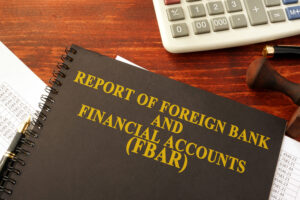What Do You Do When You Owe Taxes But Don’t Have the Funds?
For many people tax season brings the joy of a nice big refund to go out and splurge on something they’ve had your eye on for a long time. On the flip side of the equation are those people who surprisingly, or not, end up owing the IRS money. Not only do these people miss out on the extra cash influx, but they also have to come up with the funds to pay off the extra tax bill.
For some people, depending how high the bill is, they could have to pay even more than just the shortage amount. That’s because many times when people underpay they end up owing penalties for the underpayment. For those who owe a lot of money, those penalties could end up being huge. In fact, the penalties can even be much higher than the shortage.
That’s why it’s always best to try to avoid owing any money to the IRS, especially if you don’t have the funds to pay it off when the tax bill comes due. So what happens to people who can’t pay their tax bill? You do have a few options.
In some cases, it might be a good idea to take out a loan or a line of credit in order to pay off the bill. Of course, you will then be responsible to pay off the loan, so use caution. Another option is to apply for an extension with the IRS. This could buy you a little time to come up with the needed funds. If you need even more time then try applying for a hardship extension, which could give you up to six months to pay it off. You could also ask the IRS for permission to set up a payment plan to pay off the debt in installments.
Whichever path you decide to take, make sure you do something. Don’t ignore the problem or it will only get worse. The penalties will likely increase the longer you wait and the IRS could eventually take other measures or even press charges. So the bottom line is: do something.
You Thought FBAR (Foreign Bank Account Report – Form TD F 90-22.1) Was Bad?
You Thought FBAR (Foreign Bank Account Report – Form TD F 90-22.1) Was Bad? By Ron Cohen, CPA, MST Partner Greenstein, Rogoff, Olsen & Co., LLP PLEASE See: http://www.calcpa.org/Content/26096.aspx We are happy to help you meet these old & new disclosure requirements. Non-reporting subjects a taxpayer to horrendous penalties, even if no tax is due.…
What the IRS Has On File About You and How to Obtain Your Tax Files
What the IRS Has On File About You and How to Obtain Your Tax Files IRS liens and levies can wreak havoc on a person’s life, making it difficult to obtain financing on a home or a car and wiping out savings. Maybe you want access to your tax files to see where the problem…
How to Respond to That FATCA Letter You Just Received in the Mail
How to Respond to That FATCA Letter You Just Received in the Mail Are you among the many Americans who have a bank account(s) in another country? If you are, then you have probably received a letter in the mail recently from the IRS. If you haven’t, then it’s almost assuredly on its way. So…
Job Search Expenses Can be Tax Deductible
Can job search expenses be tax deductible? Summertime is the season that often leads to major life decisions, such as buying a home, moving or a job change. If you are looking for a new job that is in the same line of work, you may be able to deduct some of your job hunting…




